A filters job is to trap all of the fine dust, dirt, sand, particulates and organics that are in your pool water, creating inviting crystal clear water. Your filter won’t purify your water—that’s the job of chlorine. Filter efficiency is measured by its ability to filter out these small particles, measured in microns (1/1000 of a millimeter). For reference, a grain of salt is about 100 microns, and the human eye can see as small as 35 microns without magnification. A sand filter is the least efficient at removing smaller particles, followed by the cartridge filter and the most efficient, a D.E. filter. Sand filters can remove particles as small as 20-50 microns, Cartridge filters 10-20 microns, and D.E. 1-3 microns. Variable speed pumps help to maximize the effectiveness of a filter, as low velocity gives optimum filtration.
Salt Chlorinators
The majority of home owners today install a salt chlorinator on their new pool. Even still, people have questions and concerns about the cost, maintenance, and durability of their salt system. The greatest advantage of having a salt chlorinator is automating the process of adding chlorine, thus avoiding the potential of forgetting to add chlorine, causing a drop in sanitization levels and algae blooms.
Deck Surfaces
When choosing a deck surface, there are four considerations
- Cost
- Slip Resistance
- Temperature
- Appearance
With all of the amazing features that pools have today, the one thing missing from most is the actual ability to swim. Most pools are too short for effective lap swimming. With current trends emphasizing physical health and wellness through aging, swimming provides an excellent avenue to maintain fitness, no matter your age or situation. For those who already have a pool, a pump can be added to your pool costing thousands of dollars. For those considering a new pool, they are discouraged by the limitations of having such a small pool, or “swim spa”.
Bring the Heat!
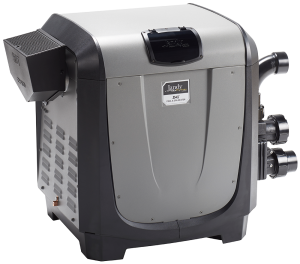 Because we have such amazing weather in Arizona, many homeowners are interested in heating their pool during the cooler months. You have options.
Because we have such amazing weather in Arizona, many homeowners are interested in heating their pool during the cooler months. You have options.
Solar Blanket
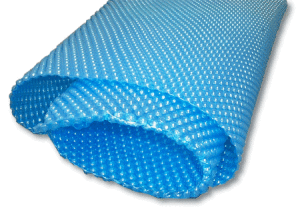 Your cheapest option, for a couple hundred bucks, you can put a plastic solar cover on your pool and raise the temperature up to 10 degrees. This makes the water tolerable a month earlier and a month later than your normal swim season, essentially extending your swim season from Spring Break to Fall Break. The downside is handling and storing the bulky blanket.
Your cheapest option, for a couple hundred bucks, you can put a plastic solar cover on your pool and raise the temperature up to 10 degrees. This makes the water tolerable a month earlier and a month later than your normal swim season, essentially extending your swim season from Spring Break to Fall Break. The downside is handling and storing the bulky blanket.
Solar Panels
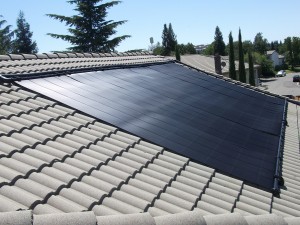 An energy efficient means of heating your pool, Solar panels can be added to a new or existing swimming pool. The number of panels and thus the cost will be determined by the surface area of your pool. Plan on spending $5000 for a solar heating system.
An energy efficient means of heating your pool, Solar panels can be added to a new or existing swimming pool. The number of panels and thus the cost will be determined by the surface area of your pool. Plan on spending $5000 for a solar heating system.
Natural Gas/Propane
Gas heaters are great options for those who have pool/spa combos. A typical gas heater can heat up your hot tub in the dead of winter in less than an hour, and the cost is a few bucks. Plan on spending $2000 for a gas heater and $11/ft to run a gas line from your gas meter to your pool equipment. Gas heaters are efficient, but an expensive option to heat your pool. Heating your pool will cost a couple hundred bucks to get it heated, but once heated, can be maintained for a relatively low cost using a solar blanket when not in use, especially at night.
Electric Heat Pump
When the cost of natural gas and propane skyrocketed, electric heat pumps became more attractive. A new heat pump will cost a little less than $4000. Similar to a central air conditioning unit, but in reverse, a heat pump will extract existing heat from the outside air (rather than generating heat), and transfer it to the pool water. A heat pump has the ability to heat water 20 degrees above the ambient air temperature. So if it is 65 degrees outside, your heat pump will create 85 degree water. Not enough for a hot tub, but sufficient to swim. Be sure to install your heat pump in a warm sunny location to get the most out of it.
Another amazing feature of the heat pump is its dual ability to cool your water. Ever dove into your 90+ degree pool water in the middle of July and felt suffocated and unrefreshed? Some have even gone to the store to buy a couple bags of ice in a futile attempt to make a refreshing splash. Your heat pump can do that for you, cooling your water to a refreshing temperature.
Be consistent with your water chemistry so you don’t get calcium build up inside your filter.
Consistently clean/backwash your filter when the filter gauge reaches 8-10 psi over startup.
Is D.E. Safe?
Diatomaceous earth is generally regarded as safe . It is used as a pest control as its course can destroy exoskeletons of many bugs and insects. While no link has been found between human exposure and cancer, it is generally advised to limit your exposure. At the pool, this can happen by creating a slurry instead of dumping the powder directly into the skimmer.
Variable Speed Pumps
“Two speed or not two speed…”
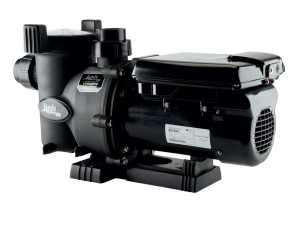 With increased environmentally conscious home owners, rising energy costs and more complex swimming pool features, equipment manufacturers responded by creating variable speed pumps, virtually replacing single and two speed pumps almost overnight. In January 2012, the State of Arizona followed California’s lead by passing a law requiring all new pump installations to be variable speed. Whether the motive is to save money or conserve precious natural resources, consumers have responded positively to the new technology. Additionally, most utility companies offer a rebate to help cover the increased upfront cost of buying the variable speed pump.
With increased environmentally conscious home owners, rising energy costs and more complex swimming pool features, equipment manufacturers responded by creating variable speed pumps, virtually replacing single and two speed pumps almost overnight. In January 2012, the State of Arizona followed California’s lead by passing a law requiring all new pump installations to be variable speed. Whether the motive is to save money or conserve precious natural resources, consumers have responded positively to the new technology. Additionally, most utility companies offer a rebate to help cover the increased upfront cost of buying the variable speed pump.
Preventing algae in your pool
Balanced water chemistry is the key to prevent algae growth. Balanced water doesn’t kill algae, but it prevents it! As Ben Franklin penned, “an ounce of prevention is worth a pound of cure.” This is never more true than with algae in pools. So keep adequate chlorine levels and pH at all times. Even in the winter time, when it’s cold and algae growth isn’t visible, it is critical to maintain adequate chlorine levels to prevent an algae bloom.
Mayday! I have algae!
While algae creates problems in swimming pools, they are one of the most important organisms on earth, capturing more of the sun’s energy through photosynthesis than all other plants combined.
Algae problems come because of extreme weather conditions and/or chemical imbalances in your pool. Excessive heat, wind and dust promote algae growth. If your water chemistry is off, then you are destined for an algae bloom. Algae grows best in indirect sunlight and in “dead zone” areas where circulation is poor. Rough or etched surfaces are ideal for algae growth, so it can “dig in” and firmly attach itself to the surface.
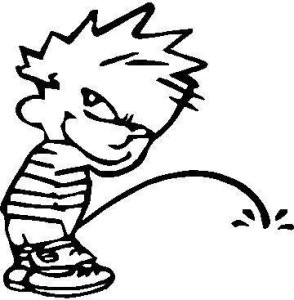 A homeowner once called a leak detection service and said, “I’ve got a leak in my pool.” He calmly responds, “Go ahead!”
A homeowner once called a leak detection service and said, “I’ve got a leak in my pool.” He calmly responds, “Go ahead!”
Does your automatic water leveler always seem to be running? Is there air in your pump basket? Do you have excessive settling in one area by the pool? These are some common signs that you may have a leak.
